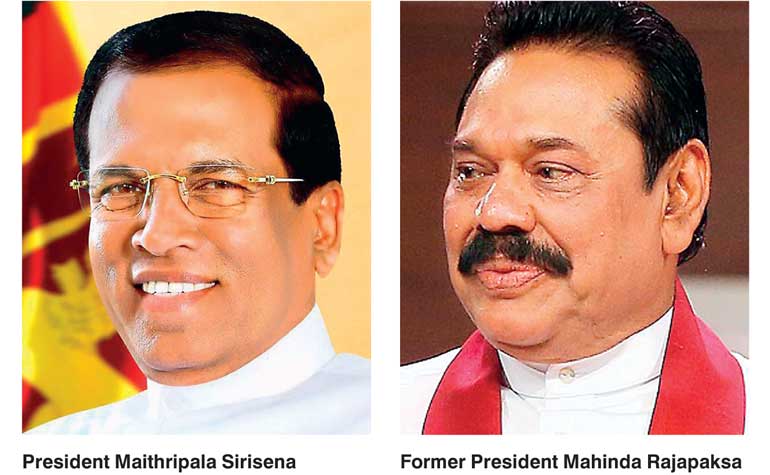Saturday Feb 14, 2026
Saturday Feb 14, 2026
Wednesday, 13 July 2016 00:00 - - {{hitsCtrl.values.hits}}

Soon after the release of the results of the British General Election 2015 and in the light of the possible Scottish separatism threats, British Prime Minister David Cameron promised to lead a Government for “one nation” and make “Great Britain greater”.
He made these comments to neutralise the effect of Scottish National Party (SNP) securing 56 seats out of 59 seats in Scotland in the first time of the British Parliament’s history. SNP managed to secure just five or six seats in four previous elections. The General Election 2015 polarised the British electoral base in an unprecedented manner.
This polarisation extended in the recently-held referendum, Brexit, where the voters had to decide whether to stay with the European  Union (EU) or to exit. Northern Ireland and Scotland comprising of Irish and Scottish populations respectively voted overwhelmingly to stay with the EU together with urban English populations such as London metropolitan. Further it was reported that the younger generation voted largely in favour of staying whereas the older generation especially of English peripheral areas voted largely to exit.
Union (EU) or to exit. Northern Ireland and Scotland comprising of Irish and Scottish populations respectively voted overwhelmingly to stay with the EU together with urban English populations such as London metropolitan. Further it was reported that the younger generation voted largely in favour of staying whereas the older generation especially of English peripheral areas voted largely to exit.
During the last regime Sri Lanka also was divided on the lines of ethnicity and religion. Although the last regime was able to defeat the LTTE terrorism decisively, they could not defeat Tamil nationalism since Sinhala nationalism did not allow to do that. Both support each other. The point of view of Sinhala nationalism was that the Tamils should be suppressed in order to avoid any possible uprising in the future. This is the myth behind the unusually large military presence in the north even today.
As a result of this the Sri Lankan polity was divided deeply at the time of the last presidential election. All the ethnic and religious minorities voted by and large for Maithripala Sirisena and Mahinda Rajapaksa secured the hard-core Sinhala Buddhist votes. With the support of the unhappy block about the governance structure it was not difficult for Maithripala Sirisena to defeat his opponent.
The main argument in favour of exiting of Britain from the EU was that the legal immigrants coming from the Eastern block of EU under the concept of relaxed borders in member countries of EU had taken over the job opportunities of the British. It was also felt by the British that the sovereignty of Britain was at stake in light of the rules imposed by the bureaucrats of EU in Brussels making EU states binding on the same. Therefore the main cause of the exit vote was that rising nationalistic sentiments and sense of sovereignty.
The European Union with the UK would have been much stronger in the light of rising economies such as China and India. Those who do not want to see a politically and economically stronger European Union such as Russian President Vladimir Putin and US presidential candidate Donald Trump downplayed the strong sentiments expressed world over for the UK to stay within the EU.
The question of sovereignty has often been raised in Sri Lanka when the issue of power sharing came in. It was once again questioned when there was a proposal that foreign judges should participate in the probes of violation of law during the time of war.
As far as the UK is concerned, by joining the EU, British Governments achieved certain national objectives which could not have been achieved by the sovereign British Governments alone. One example in the political field was constraining the nuclear program of Iran. In the economic field it created a single large market in EU. Whenever a government signs an international treaty, sovereignty of that country is affected to a certain degree. When the UK joined the NATO alliance in order to safeguard its sovereignty, it could have been argued that by joining the alliance the very sovereignty that they were trying to safeguard was affected.
In the case of power sharing in Sri Lanka there would be a possibility that certain powers once devolved could not be taken back by the centre without the consent of the periphery. That is a political compromise to keep the periphery within the territorial limits of the centre. In Britain there is asymmetrical power sharing between Westminster and territories of Scotland, Northern Ireland and Wales.
When it is proposed to have foreign judges in the probes of violation of law during the wartime it is done in order to establish a credible mechanism facilitating anyone to believe that the justice would be done. Thereby a greater national reconciliation would be possible. Hence the concept of sovereignty could have been interpreted covering the futuristic aspects of a nation as well rather than limiting to a current legal concept.
When the GSP+ facility given to Sri Lanka was withdrawn by the EU during the previous regime, it was argued that by the conditions imposed by the EU the sovereignty of Sri Lanka was affected. Certainly the EU through those conditions dictated the terms to the Sri Lanka Government, but all those conditions which were mainly on human rights, intended to safeguard the interests of ordinary citizens of Sri Lanka. In order to safeguard the sovereignty of the Sri Lankan State, the then Government sacrificed the interests of the ordinary citizens. Therefore by this act whose sovereignty was safeguarded and whose sovereignty was affected?
The citizens of England wanted to increase the portion of the cake they got. They thought that the immigrants from the eastern European countries taken over their jobs. However in fact the immigrants were contributing to the British economy. By advocating Brexit they have probably reduced the size of the cake. The value of the sterling pound in comparison to the US dollar dropped to the lowest in 30 years. Britain would face a bigger problem if Scottish people who decided to stay with Britain at a referendum held in 2014 decide to leave Britain and join EU.
In Sri Lanka we have opened the economy in 1977 well ahead of other South Asian countries. India opened the economy in 1991.
If we did not have the ethnic problem, by now our economy would have been in line with the South East Asian countries. In the present day context nationalistic views sometimes would go against the economic prosperity which is very important to a nation. It is not the thinking of “ballo marala hari salli hoyala” – earn money by even killing dogs; it is the thinking of getting maximum benefits out of this short life. Benefits can be either economic or spiritual – either attain Buddhahood or become the Emperor.
Present Sri Lankans, mainly Sinhala Buddhists by and large neither spiritually rich nor economically prospered. They are living their short lives with petty nationalistic dogmas which are a hindrance to spiritual or economic progress.
They do not know that this thinking drags them, their country and the future of their children down.
Their priests who understand neither what Buddha said nor do contemporary world affairs think that their duty is to safeguard the Sinhala Buddhism which is quite the opposite of Buddhism. Understanding this is very crucial at this critical juncture of the history of our nation.
(The writer can be reached via [email protected].)